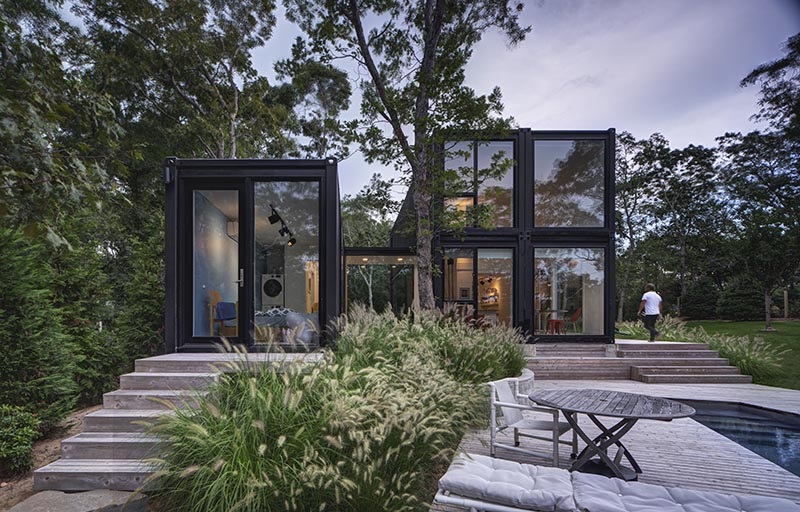
How Much Does It Cost to Build a Container Home?
Are you considering building a container home? If so, one of the first questions that may come to mind is, “How much will it cost?” The answer to this question depends on various factors, such as the size and design of the home, location, labor costs, and materials used. In this article, we will explore the costs associated with building a container home and provide you with some helpful tips to keep your budget in check.
Understanding Container Homes
Before diving into the cost aspect, let’s first understand what a container home is. A container home is a type of residential structure made from shipping containers used for transporting goods on ships, trains, and trucks. These containers are usually made of steel and come in standard sizes, typically 20 or 40 feet long. They are designed to be sturdy, secure, and weather-resistant.
Container homes have been gaining popularity in recent years due to their affordability, durability, and eco-friendliness. They can be customized and built off-site before being transported to the desired location. The construction process is quicker and more cost-effective compared to traditional homes.
Factors Affecting the Cost
As mentioned earlier, several factors can influence the cost of building a container home. Let’s take a closer look at these factors:
Size and Design
The size and design of your container home will significantly impact its overall cost. The larger the home, the more containers you will need, resulting in higher expenses. If you plan to build a multi-story home, it will require more structural work and materials, thus increasing the cost.
The design of your container home also plays a crucial role in determining the final price. A simple rectangular or square-shaped home will be less expensive compared to a complex design with multiple angles and levels.
Location
The location of your container home will also affect the cost. Some areas may have specific building codes and regulations for container homes, which can add to your expenses. For instance, if you plan to build in a remote area, the cost of transporting materials and labor may be higher.
Additionally, suppose you want amenities such as electricity, water, and sewage systems on your property. In that case, you may need to pay for connections and installation, which can vary depending on your location.
Labor Costs
Labor costs are a significant part of any construction project. The cost of hiring contractors to build your container home will depend on their experience, skills, and location. You may also need to hire additional workers for specialized tasks such as plumbing and electrical work, which can add to the overall cost.
Materials Used
The type and quality of materials used in constructing your container home will also impact the cost. For instance, using high-quality insulation and finishing materials will increase the price but can save you money in the long run by reducing energy costs. On the other hand, opting for cheaper materials may result in more significant maintenance expenses over time.
It’s essential to strike a balance and consider the long-term costs when choosing materials for your container home.
Tips for Keeping Costs in Check
Now that you understand the various factors affecting the cost of building a container home, here are some tips to help you keep your budget in check:
- Plan and research extensively before starting the project. This will give you an idea of the various costs and help you create a realistic budget.
- Keep the design simple. Avoid complex and intricate designs that can add to your expenses.
- Opt for used shipping containers instead of new ones. Used containers are cheaper and still in good condition for building purposes.
- Look for sustainable materials that are cost-effective and environmentally friendly, such as bamboo flooring or recycled insulation.
- Consider building in a location with fewer building regulations and taxes to reduce costs.
FAQs
Q: Can I build a container home myself?
A: It is possible to build a container home on your own, but it requires knowledge and skills in construction. It’s recommended to hire experienced contractors for the best results.
Q: Are there any hidden costs when building a container home?
A: Yes, there may be hidden costs such as obtaining permits and inspections, connection fees for utilities, and hiring specialized workers.
Q: How long does it take to build a container home?
A: The construction timeline can vary depending on the size and complexity of the home. On average, it takes 3-6 months to complete a container home.
Q: Can I add to my container home in the future?
A: Yes, one of the benefits of container homes is their flexibility. You can easily add on to your existing structure in the future if needed.
Q: Are there financing options available for building a container home?
A: Some banks and financial institutions offer loans specifically for building container homes. You can also explore options like personal or equity loans from your current property. Be sure to research and compare rates to find the best option for you.
In conclusion, there is no straightforward answer to how much it costs to build a container home. However, by considering the abovementioned factors and following our tips, you can create a budget and keep costs in check. Container homes offer an affordable and sustainable housing option, making them a popular choice for many homeowners. So if you’re considering building one, do your research, plan carefully, and properly budget, you can have your dream container home without breaking the bank.




Average Rating